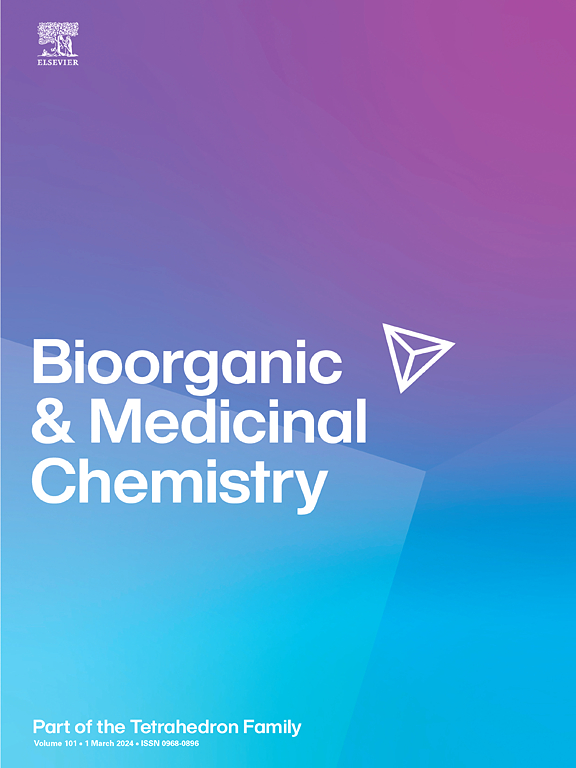Design, Synthesis, and biological evaluation of 7H-Pyrrolo[2,3-d]pyrimidines as potent HPK1 kinase inhibitors
IF 3.3
3区 医学
Q2 BIOCHEMISTRY & MOLECULAR BIOLOGY
引用次数: 0
Abstract
Hematopoietic progenitor kinase 1 (HPK1) has emerged as a promising target for cancer immunotherapy due to its critical role as a negative regulator of T cell receptor (TCR) signaling. Despite this potential, no HPK1 inhibitors have been approved for cancer treatment, underscoring the need for structurally novel inhibitors. Herein, we describe the design, synthesis and biological evaluation of a series of potent HPK1 inhibitors based on our previously identified hit 9. Among them, compound 24 demonstrated strong HPK1 inhibition (IC50 of 10.1 nM) and effectively suppressed phosphorylation of the downstream protein SLP76. Notably, compound 24 exhibited enhanced potency in promoting IL-2 secretion in Jurkat T cells, reduced cellular toxicity, and improved liver microsomal stability compared to hit 9. Overall, this study provides a promising lead compound for further optimization as a candidate for cancer immunotherapy.

求助全文
约1分钟内获得全文
求助全文
来源期刊

Bioorganic & Medicinal Chemistry
医学-生化与分子生物学
CiteScore
6.80
自引率
2.90%
发文量
413
审稿时长
17 days
期刊介绍:
Bioorganic & Medicinal Chemistry provides an international forum for the publication of full original research papers and critical reviews on molecular interactions in key biological targets such as receptors, channels, enzymes, nucleotides, lipids and saccharides.
The aim of the journal is to promote a better understanding at the molecular level of life processes, and living organisms, as well as the interaction of these with chemical agents. A special feature will be that colour illustrations will be reproduced at no charge to the author, provided that the Editor agrees that colour is essential to the information content of the illustration in question.
 求助内容:
求助内容: 应助结果提醒方式:
应助结果提醒方式:


